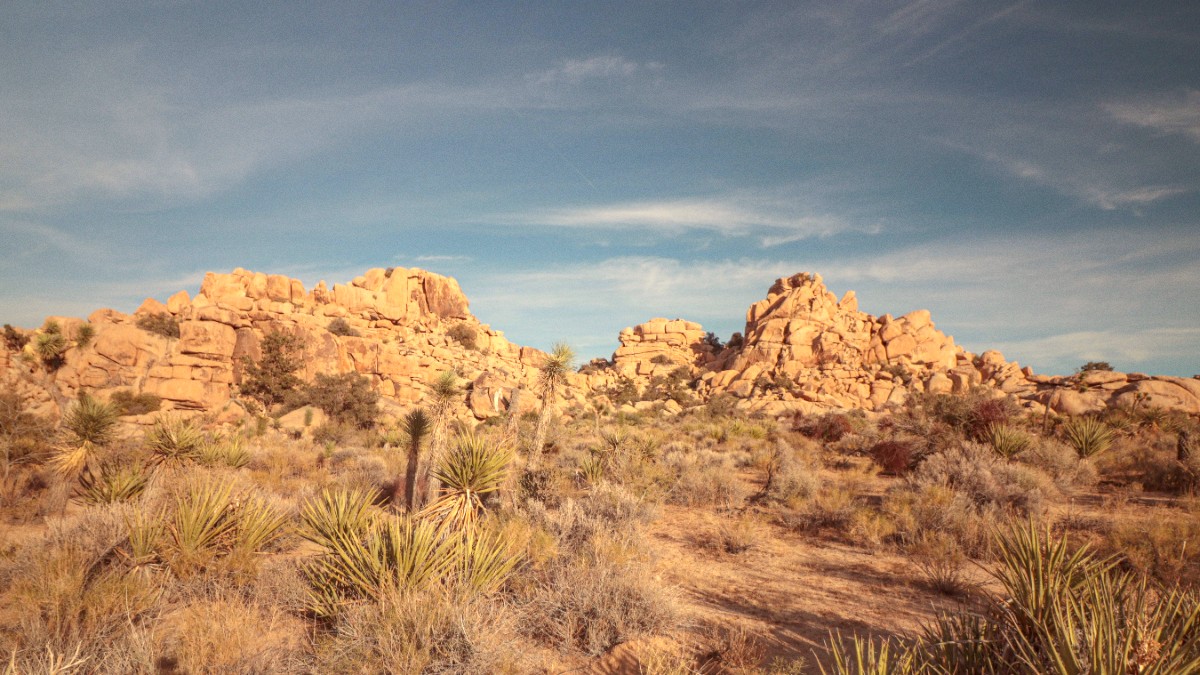
California, USA
Joshua Tree National Park is a protected area managed by the National Park Service, preserving its unique desert ecosystem.
Visitors are strongly encouraged to carry out all trash. There are few receptacles within the park.
The desert is an arid environment; water is a precious resource. Minimize water use when possible.
Discover the park's cultural history and practices for respectful interaction.
The park preserves cultural history, including Native American sites (petroglyphs) and historic homesteads (Keys Ranch).
Show consideration for all cultural sites and practices.
Consider purchasing carbon offsets for your flights and vehicle emissions to mitigate environmental impact.
Seek accommodations and tour operators that highlight sustainable practices.
Look for local artisan shops selling their own goods, supporting fair compensation. Patagonia and Package Free Shop for gear.
Patagonia.comChoose locally owned restaurants, shops, and tour guides over large chains. G Adventures for ethical tours. The Rainforest Site supports conservation.
G Adventures.comYour travel choices contribute directly to the local economy.
Support local businesses directly by purchasing goods and services in Joshua Tree Village, Yucca Valley, and Twentynine Palms.
Avoid illegal or harmful actions that damage the environment or exploit resources.
Choose locally owned businesses over large chains when feasible to support community circulation.
Your consumer choices can create a positive impact on both local communities and the environment.
Support the local economy by dining at independent restaurants and buying souvenirs from local artisan shops in Joshua Tree Village or Yucca Valley.
Dine at unique cafes and independent restaurants.
Find unique desert-inspired items and art.
Your direct support helps local families and businesses.
Embracing mindful approaches to protect the environment and culture during your visit.
Do not feed or approach wild animals. Keep a respectful distance to avoid disturbing them.
Remain on marked trails to safeguard fragile desert ecosystems and minimize your impact.
Water is a precious resource in the desert. Conserve water whenever possible during your visit.
Keep voices and music at a low level, especially in campgrounds, to maintain natural quiet.
Use red light flashlights at night to preserve night vision and dark skies for stargazing.
Allow others to enjoy stargazing without bright light interference. Contribute to preserving natural darkness.